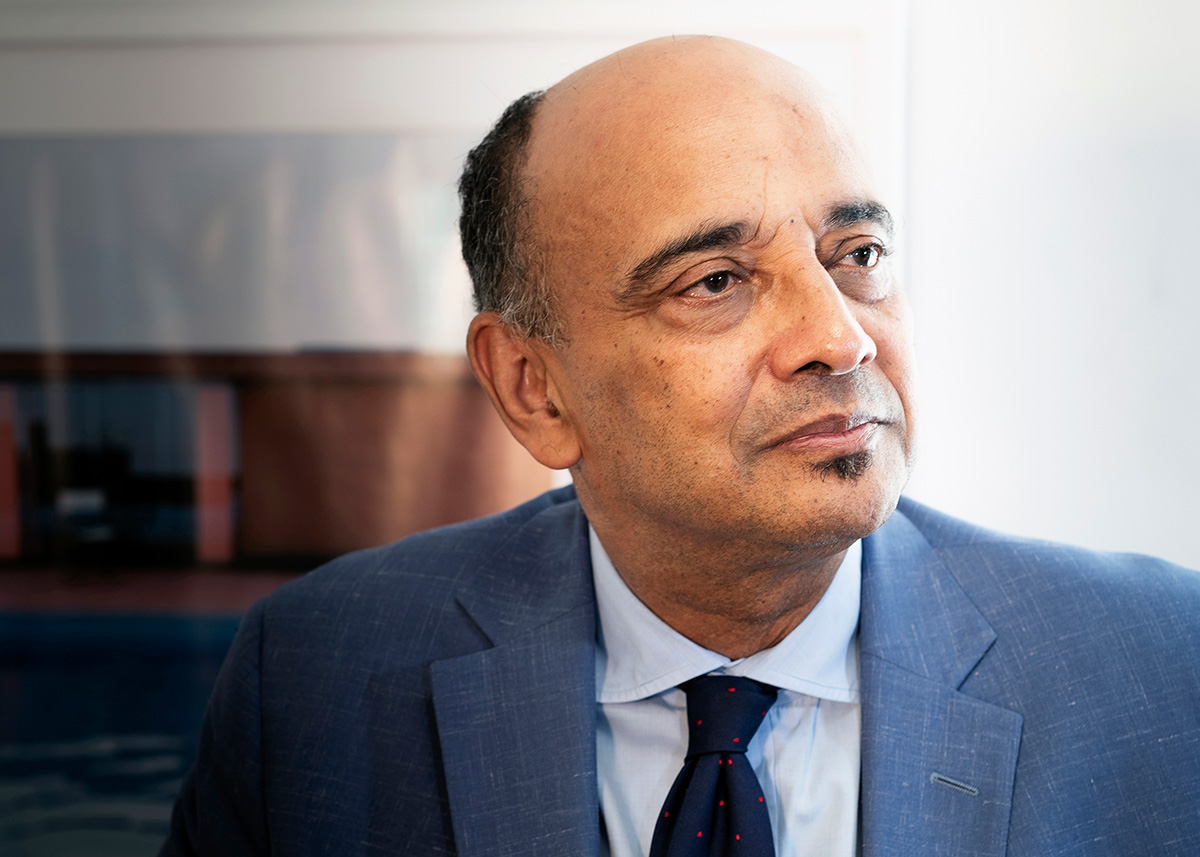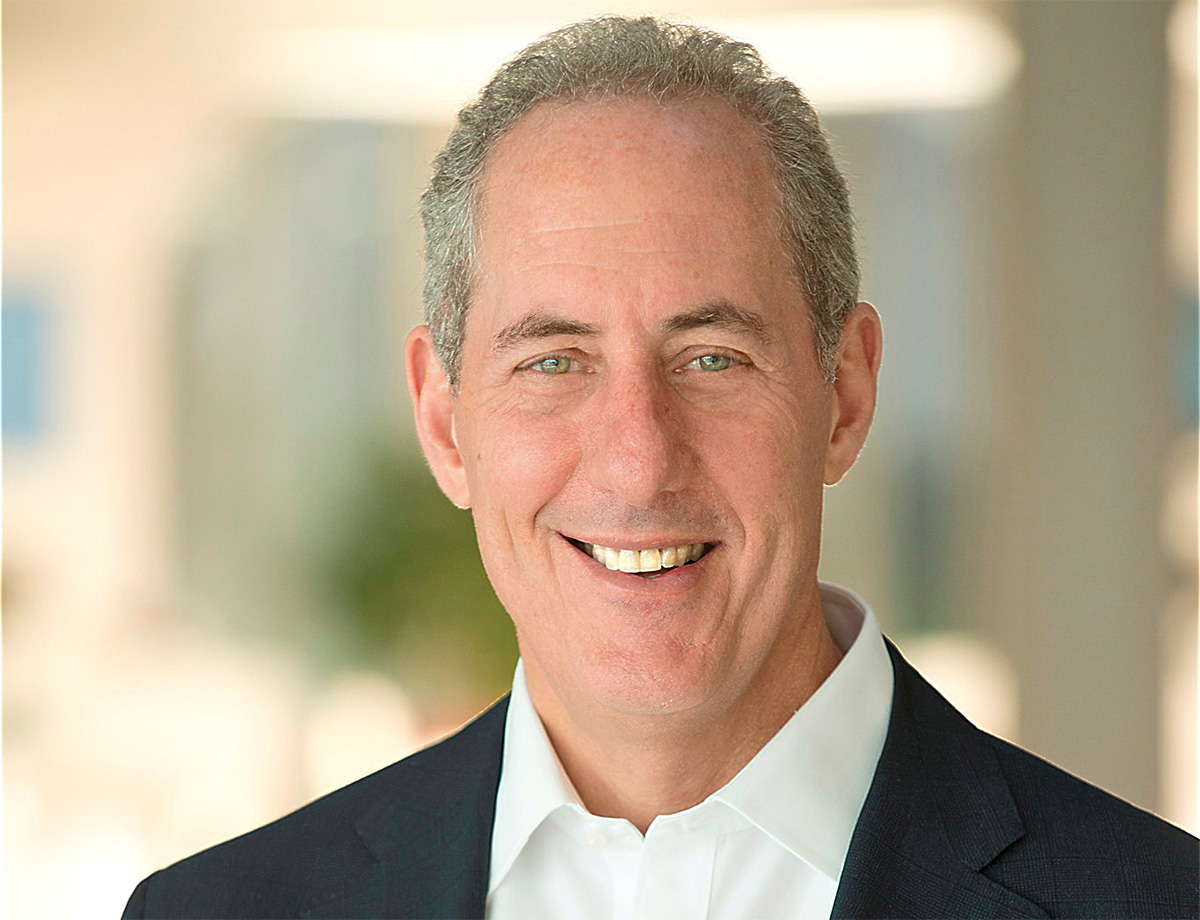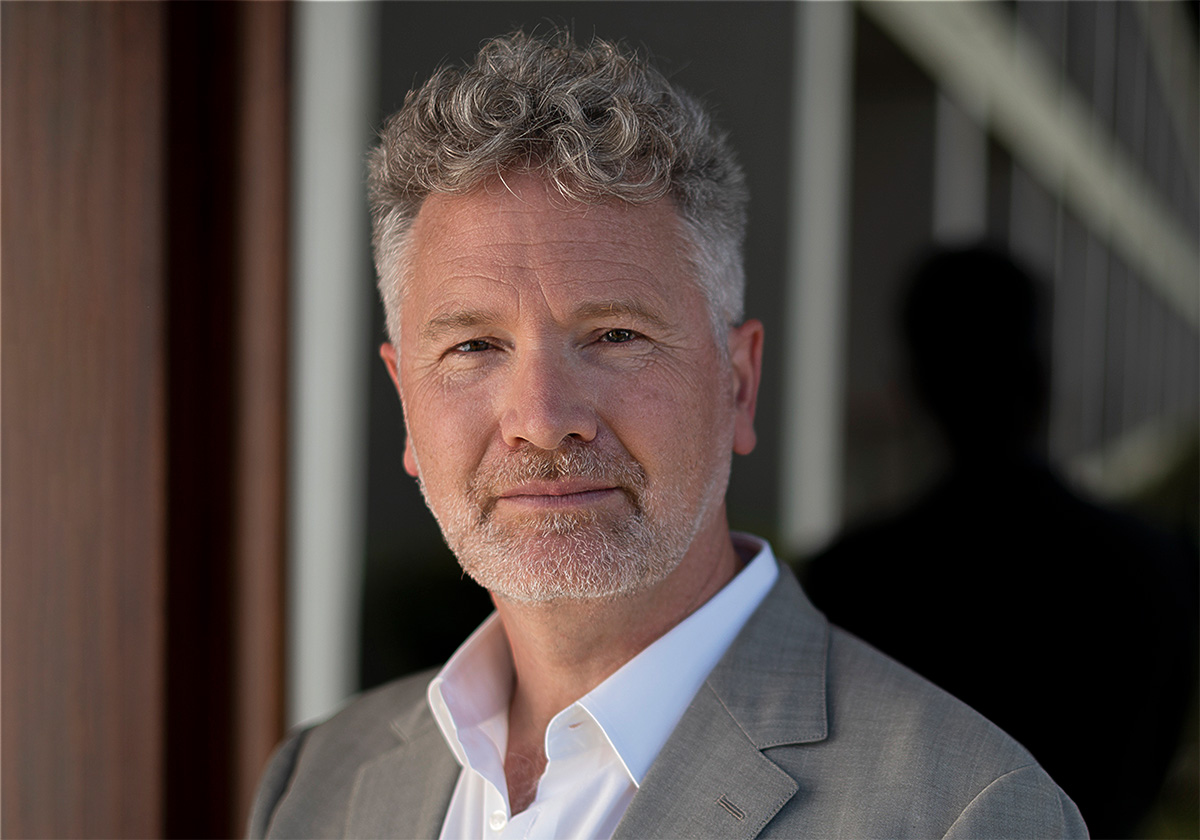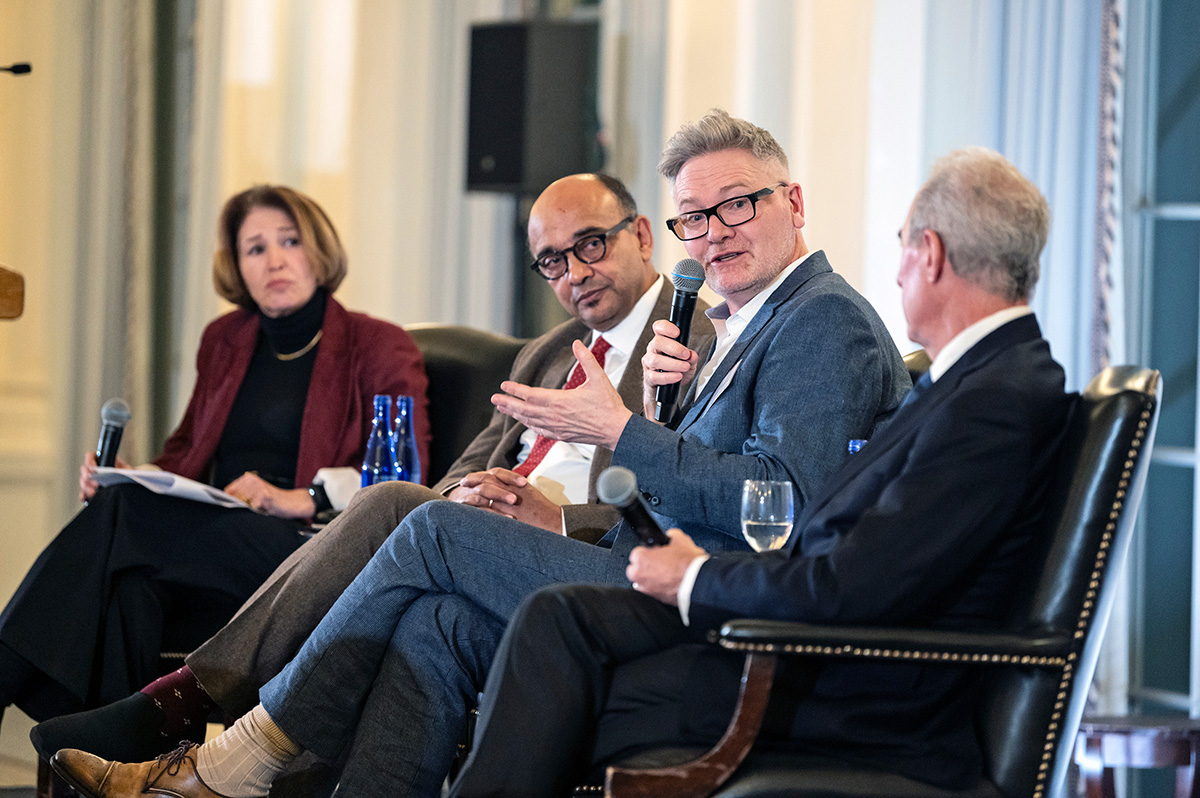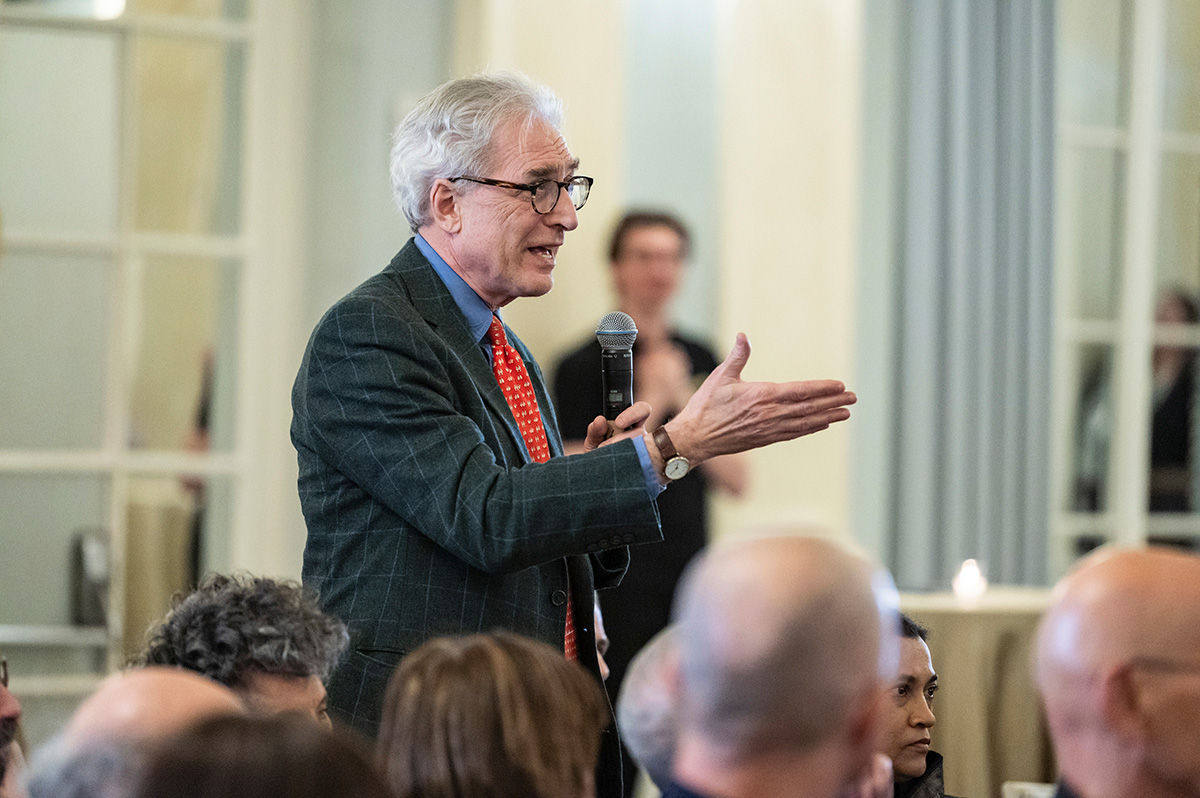2132nd Stated Meeting | February 5, 2025 | New York City
On February 5, 2025, the Academy’s New York Committee hosted a discussion for members and their guests about the most pressing issues facing the world in 2025. The event featured Kwame Anthony Appiah (New York University), Michael Froman (Council on Foreign Relations), and Adam Tooze (Columbia University) in conversation with Anne-Marie Slaughter (New America). Academy President Laurie L. Patton delivered the opening remarks. An edited transcript of the conversation follows.
Anne-Marie Slaughter
Anne-Marie Slaughter, a member of the American Academy since 2002, is the CEO of New America and the Bert G. Kerstetter ’66 University Professor Emerita of Politics and International Affairs at Princeton University.
I’m delighted to be here this evening to moderate this discussion with our distinguished panelists. Let me take a moment to introduce them. Anthony Appiah is Professor of Philosophy and Law at New York University. He has written on many different subjects and for tonight’s purposes it is very notable that he writes “The Ethicist” column for The New York Times. Adam Tooze is the Kathryn and Shelby Cullom Davis Professor of History and Director of the European Institute at Columbia University. He also chairs the Committee on Global Thought. Michael Froman is the recently appointed President of the Council on Foreign Relations. Before that he was the Vice Chairman and President of Strategic Growth at Mastercard and he served as the U.S. trade representative from 2013–2017. I had the pleasure of serving in the Obama administration with him.
Our topic is the world in 2025, and that world has changed quite dramatically since January. This evening, we are capturing a frozen moment in time and giving ourselves an opportunity to pause, reflect, and interrogate how things are in our world today.
Anthony, let me start with you. One of your many books is on cosmopolitanism. In many ways, you embody an ideal of cosmopolitanism in your own person, in your life, and in your writings. But cosmopolitanism isn’t exactly the flavor of the day in the United States and Europe right now. We are seeing a resurgence of nationalism. Is this a standard pendulum swing? We were globalists and now we’re nationalists? Or is there something deeper happening that is challenging the notion of cosmopolitanism as you’ve developed it?
Kwame Anthony Appiah
Kwame Anthony Appiah is Professor of Philosophy and Law at New York University. He was elected a member of the American Academy of Arts and Sciences in 1995.
Since I don’t think of myself as a prophet, I’m not sure I can tell you what’s going to happen. But I think you’re correct that a spirit of cosmopolitanism that was somewhat exemplified in the rhetoric and discourse of the Obama administration is ending. We are not seeing that type of cosmopolitanism in contemporary American politics. It’s also not there in Indian politics. It’s not there in Nigerian politics, and it’s definitely not there in Europe right now.
The story is complicated. We failed to take proper advantage of what the globalization of the economy gave us. Globalization produced huge amounts of wealth in ways that affected Asia, in particular, by reducing poverty. If you’re a left-leaning anti-globalization person, you need to explain why you’re against something that took hundreds of millions of people out of poverty in India and China and made a bunch of people you may not like very rich. In principle, this was a good for everybody. Let me give an example. The typical American owner of an iPhone wouldn’t have been able to afford their iPhone if we hadn’t had globalization because the iPhone would have cost $15,000. I know it seems like we are moving in that direction now, but there was a period when an iPhone was affordable for a lot of people. The Davos elite failed to distribute those enormous gains that came from being deeply interconnected economically.
A few days ago, when I was thinking about what I could bring to the conversation tonight, I thought of global health and the ways in which international cooperation in that domain has been enormously productive. The president has closed down a part of the government that is central to that. But to keep the focus tonight on the world, our colleagues in Europe, in Scandinavia, and to some extent in China are going to have to continue to take up some of the slack. And that will reduce the United States’ significance. And to be honest, I’m not too unhappy about that. I think a large imperial America is not terribly attractive and the fact that the president is explicit about not thinking of the United States any longer as a moral force in the world, but merely just a larger Paraguay . . .
SLAUGHTER: That may be the line of the night. We’re a larger Paraguay.
APPIAH: The president wants us to leverage our resources for our own interests. He seems to think that we have no moral or political obligations to anybody else. It doesn’t matter whether he gets to change the government in that direction. Just having a president talking in that way means that our colleagues are going to have to think about how to manage these things better. I think that will have some good effects in the domain of global health because the Germans, the French, the Scandinavians, and the British are more inclined to work on health infrastructure. USAID and the WHO have tended to focus on diseases, especially infectious diseases. But some of the most serious diseases are not infectious diseases. For example, sickle cell is not an infectious disease but it is a debilitating problem in Africa. And that’s important because by the end of the century, a majority of the world’s children will be born in Africa. The median age in the European Union is forty-five; it’s nineteen in Africa. Nigeria, where my brother-in-law is currently the minister of finance, is a huge and powerful country that is thinking about its role in the world. Nigeria has been collaborating with us to deal with some of the problems in the Sahel, but some of that collaboration may disappear. We have a quarter of the world’s GDP. So, if we pull out of these types of collaborations, there’s a big gap to fill.
SLAUGHTER: We’re going to come back to this point about the benefits to the United States of assuming it’s the only leader. I do want to note, however, that Trump pulling out of the World Health Organization does not mean that Americans are not still deeply involved in global health. During the first part of the pandemic, universities and companies collaborated with their Chinese and European counterparts. U.S. foreign policy is not just a function of what the government does; it involves a wider and more complex set of actors.
Anthony, you mentioned Davos so let me now turn to Mike because he’s just returned from Davos. The United States has traditionally presented itself as a moral force in the world. Reagan certainly saw us that way and so did George W. Bush. We have this universalist vision. Our Declaration of Independence says that all men—not all Americans—are created equal. Mike, in many ways, you’ve fought one of the last big battles of pro-globalization, pro-free trade, pro-global benefits: negotiating the Trans-Pacific Partnership with Asia. Hundreds of millions of people are no longer in poverty because of globalized trade and investment. You were fighting what many of us had thought for decades was the good fight. Where did things change, and could we have prevented what happened?
Michael Froman
Michael Froman is President of the Council on Foreign Relations. He previously served as Vice Chairman and President of Strategic Growth at Mastercard.
Let’s take a step back and put things in a slightly broader context. I agree with Anthony that globalization on the whole had extremely positive effects on the world, including for the United States. But both Democratic and Republican administrations failed to pair globalization with a set of domestic policies that would ensure that those who were being left behind had the tools they needed to survive and thrive in a rapidly changing economy. The economy was changing because of globalization, or because of technology, or because of immigration and that I think led to this backlash. And what’s interesting is that it’s not universal. Europe has a different tradition for their social compact, where labor unions have worked to make sure that their members could be retrained and continue to participate in a changing economy. They have remained much more pro-globalization. They are fully sold on the values of liberalization and integration. The United States has pulled back more than the rest.
If we look across Africa, the continental-wide Free Trade Agreement was not a great trade agreement, but it was quite remarkable that Africa agreed to it and its implementation over several years. Asia, of course, is very committed to integration. ASEAN is a great example of that. And those efforts continue apace. I think the United States has had the most significant reaction. As we’ve seen in Europe, some of the polarization hasn’t necessarily been translated into a fundamentally different economic policy.
If we take a step back, I think some could say that we are nostalgic for and miss the stability of the Cold War. We knew who was who in the Cold War. There was one side or the other. You knew where you stood. The tools of the trade were well known. In fact, there was a lot of interaction between the West and the East with mutual understanding of how to manage the competition and the conflict. That lasted for forty years. It was replaced by liberal democracy, which lasted for thirty years. And that’s now over. We have a much more complex world today. And in my view, it’s not multipolar.
SLAUGHTER: I agree. I would say it’s multi-aligned.
FROMAN: I prefer the word polyamorous! Let me use India as the best example. India loves the United States for our civil nuclear cooperation and our technology. India loves Russia for its munitions. India loves Iran for its oil. India loves and hates China, depending on the topic and the time of day and this whole notion of the BRICS Plus. These are countries that do not have very much in common except for the fact that they don’t want to be seen fully aligned with the United States. This is a much more complex world. And India is just one example. We could talk about other so-called middle powers.
To your question about how do we exercise moral leadership and strategic leadership, I think it would be a herculean diplomatic task for any American administration to put all of the skills of diplomacy at work to help build these coalitions of the willing around one issue or another. We’re not in a world where countries are with us or against us on every issue. They’re going to be with us on some issues, against us on others. And our enemies or our competitors have a third set of issues that matter to them.
Now enter Donald Trump, perhaps the most unconventional president we’ve had in some time, who isn’t necessarily committed to that level of diplomatic engagement. This raises serious questions about what’s going to be the role of the United States going forward. Are we interested in playing a leadership role? On what sorts of issues? How are we going to use the tools at our disposal to do so? If we want to engage internationally, we need to build a politically durable consensus about why we’re engaged internationally, why it’s in our interest to be so, how we’re going to be engaged, and how we’re going to manage the tradeoffs between addressing international issues and issues here at home.
SLAUGHTER: Thank you, Mike. You’ve given us plenty to follow up on. To quote Rana Foroohar, a columnist at the Financial Times, “The U.S. is not an anchor for stability, but rather a risk to be hedged against.”1 In 2022, when the German Chancellor delivered his Zeitenwende speech, he said we don’t know what will happen in 2024, so we can’t count on the United States to help Ukraine. The United States is certainly being seen very differently now.
I want to go back to what you said about how you prefer the word polyamorous to describe things today. I use the word multi-aligned; it is the way India describes its foreign policy. The Biden administration courted India mightily. They were “our” democracy. And then came the war in Ukraine. General Petraeus said to Indian Foreign Minister Jaishankar, “You know, Minister, you’ve got to choose now that Russia has invaded Ukraine. You have to be on one side or the other.” And Jaishankar said, “General, we have chosen. We’ve chosen India.” And that’s the difference. They are going to have a relationship with whomever they need to have a relationship with to do what they need to do. So, we agree. It’s a complex world in which many middle powers are finding new space.
Adam, you’ve been patient and there are lots of things you can react to. We are talking about the whole world as one entity. Thinking about America’s place in the world, does that framework make sense?
Adam Tooze
Adam Tooze is the Kathryn and Shelby Cullom Davis Professor of History and Director of the European Institute at Columbia University.
It’s really a privilege to be here. When I received the prompt for tonight’s conversation—what are the big issues in the world right now?—I have to admit that I was quite stumped. It seemed to me at that time that the central question of our moment is the one that several people have already alluded to: What is your world? Depending on your answer, I could guess as to what your issues might be. This has a kind of late-twentieth-century, early-twenty-first-century feel to it. Global public health would be a classic instance of this. From a historian’s point of view, I’m not sure whether it’s a fragile moment, but it’s certainly a historical moment that has been conjured up in different ways. The cosmopolitanism of global Marxism in the 1930s was very different and remote from the world that we’re in now. The cosmopolitanism of social Catholicism is another kind of globalism. After what’s happened recently, especially to USAID, which more than any other organization maps the world from an American perspective that is in constant dialogue with that world, I don’t know how to explain what has transpired. USAID works through this elaborate network of contractors who localize what’s being done and they actually make it work. How do we describe what’s happened to them? It’s like some ghastly sitcom where a terrible boss charges into the office and is hurling the furniture around. In a medieval sense, it’s a sacking of a complex modern institution of American power and hegemony.
The development community is in a state of shock. The sanguine stories about how last time around we managed to pull through, that the Republicans in Congress protected the USAID budget, and American development aid stayed relatively level—well that’s not happening now. There’s a bit of me that wants to refuse the terms of this conversation, not to tell stories that move on to how it’s going to be okay. I think it’s worth lingering on what this means historically for the United States. I’m shocked by how calmly senior Democratic elites in the last couple of weeks have been taking this. And why it matters is precisely Anthony’s point. There’s an Economist graphic that points out that next year, the sub-Saharan African working-age population will exceed that of the entire developed world. And one year after that, it will exceed the working-age population of China. The story of globalization that we’re looking back on nostalgically has left these African people dozens of miles behind the starting line from the rest of us. East Asia, India, and even the West are in a different league, not in a different race. Hence the urgency of this moment. I’m sorry if I’m sounding alarmist, but we are feeling the foundation shaking.
SLAUGHTER: I’m going to push you all on something because you all seem to assume that the world is better off when the United States is running it or playing a major role. Let me start with a hypothetical that I think is true. U.S. foreign aid is not going away. U.S. foreign aid will now be dictated by the State Department. It will be different, but let me note that in both Britain and Australia they had a separate Department of Development and in both cases, it got rolled back into the Foreign Office. When the Department for International Development (DFID) came to see me in 2009, they were so determined to be separate from the Foreign Office that I could barely find “Her Majesty’s Government” on their business card. The way things have been done is absolutely horrific, but it is not the end of U.S. foreign aid. Trump may make it deeply transactional, but many countries may not mind that. In so many countries the argument is that you, the United States, and the Europeans run this system and it’s not fair. You run the IMF; you run the World Bank. I’m not saying they’re jumping for joy because of Trump, but I’m not convinced it’s so terrible for the world. At least, I want to hear the case for why it is.
APPIAH: I was trying to make the argument that our priorities for public health haven’t necessarily been the right priorities. Not in a left, right, up, or down sense. The Germans, the French, and the Norwegians have quite good ideas about public health. They’re already spending a lot on this. And I think they’ll take up some of the slack, which isn’t a bad thing. It remains the case that without USAID, there’s no battle against the Marburg virus in Tanzania, no work to find a treatment for river blindness, none of the HIV vaccine trials that we’ve been funding through that mechanism, no PEPFAR (President’s Emergency Plan for AIDS Relief) to make lenacapavir available to people at high risk of HIV infection. All of these are obviously good things.
SLAUGHTER: They will resume.
APPIAH: Yes, these things will probably be picked up by the State Department, but we benefit greatly from the work done by USAID and the WHO. If I were advising the Chinese, I would say to them that the United States is pulling out of the WHO. Thirty to forty thousand Americans could die of flu next year because the United States didn’t help find the new variants that we’ve helped to find every year through the WHO mechanism. The Chinese wouldn’t do that, because it’ll cause the death of thirty thousand Europeans and that’s not a decent way to behave. But my point is, the Chinese have a notion of decency. Part of our failure in the period of successful globalization was to explain what we were getting out of it. We were creating a world that was good for lots of people but it wasn’t great for everybody. And it could have been better for everybody. That is not the fault of the Republican Party. It’s the fault of everybody, including Europe.
What we should hope for is to maintain enough of our capacity so that when there’s a new administration we can rebuild. We also need to recognize that the rest of the world is not like us in these respects. Fortunately, there are people who are working on public health in the developing world.
SLAUGHTER: Mike, would you like to respond?
FROMAN: The Council on Foreign Relations was created one hundred and four years ago to fight against isolationism and to reinforce the role of the United States in the world. I believe that U.S. leadership is a net positive thing, most of the time. I find that people around the world worry more about U.S. indifference than U.S. overreach. And they want the United States involved. The more that China is involved in Africa, or in Southeast Asia, the more they want the United States to be there. So giving up that opportunity unilaterally creates a very negative dynamic.
I would say I’m both more alarmist and more optimistic. I’m more alarmist because of what’s happening to USAID as an institution. I expect foreign aid will be cut very significantly. And I’m not sure that Congress is going to save it this time under the pressures of the president. I was on the phone today with somebody who said that they had just fired five thousand health workers in Ethiopia because their contract was not being paid. And so all of this is having a real impact on the ground beyond just who gets to dictate where the money goes.
But I’m also more optimistic. As in the case of many things that President Trump says and does, it’s unconventional and it’s extreme. But there’s a nugget underneath that needs to be taken seriously. Foreign assistance is in dire need of reform. And that’s not a controversial statement. I think anybody on the left or the right would feel that we are not necessarily getting the full bang for the buck. The impact that you would hope for after all these decades of assistance hasn’t been as significant as we had expected. What does it mean to rethink foreign aid? What does it mean to address these global public good issues, such as public health or infrastructure or pandemics or climate change? I don’t expect this administration will address any of that because there are lots of other issues: Greenland, Panama, Gaza. Each has a nugget of truth underneath that we need to find a way to address.
SLAUGHTER: I was just in Singapore and it’s true that I heard people say that we do not want you to make us choose, but we absolutely want you to be here. I think Trump’s response is going to be, “Fine, we’ll be here. But we’re going to require you to pay us to be here.” In other words, we’re not going to be there because we think it is good for the global order. We’re going to be there if you pay us. Again it’s a deeply transactional view. I think Congress will push back, and many of the budgets will be reallocated.
Adam, you have the last word before we turn to the audience for questions. You have written about how to think about the world differently. Europe will probably play a bigger role and to me, that’s a good thing. Do you agree?
TOOZE: Another way of formulating my unease with the relatively sanguine tone of the conversation is the question of time and urgency. It makes sense in the American context to talk about a future administration in which we’ll do things better. But both on the climate front and when we’re running against the demographic surge in Africa, quarters lost, let alone four years lost, are disastrous. And from the point of view of global development, the real question is not why haven’t we had more bang for the buck, but do we understand that the buck we’re going to have to put in if we’re going to be serious about this is two orders of magnitude larger than what we’ve done so far? We need to be in the range of a trillion dollars a year in investment. For Africa alone it is $400 billion according to estimates and we’re not close to that number. All of this is going to be inefficient and rough in the way that any major investment surge is. Think about the robber barons in America in the nineteenth century; it wasn’t pretty. But if you’re serious about making transformational changes, China, the Soviet Union, and the United States have shown that’s the kind of scale we need, and we are far from that. And that to me is what adds to the jarring disconnect between the elites and the rest of society in the United States, with the elites contemplating, “Oh well, you know the next time around . . . .” From a historian’s point of view, these are the moments when we’ve dropped the ball, the moments our children and grandchildren will look back on and ask, “What on earth were you doing?” For me, that is what’s driving this impatience.
SLAUGHTER: Thank you, Adam. Let me now turn to questions from our audience.
AUDIENCE MEMBER: There’s seems to be a movement afoot to take a look at the CIA, the FBI, and our domestic security establishment. To me that seems to have something to do with the role of the United States in the world. I wonder if any of the panelists have a reaction to that.
TOOZE: You might think of it as the destruction of USAID and the subversion and politicization of the FBI and the CIA. For those of us who are fascinated with macro finance, the elephant in the room is the Fed. So the question is, what happens if economic policy is subverted in a highly partisan way?
FROMAN: We’ve taken for granted that there would be independence or separation of powers. In some cases, I think the Fed and the market lead the way. If there’s a true infringement on the independence of the Fed, one would expect there to be a market reaction. The one thing we know the president is attuned to is the market reaction, and that may have a disciplining effect. I don’t expect a market reaction when it comes to merging the CIA and the FBI, or having the CIA focus on domestic surveillance. So what do we do instead of shaking our fists at the sky? Democracies have elections, elections have consequences, and we see the consequences. This president has a majority in both the House and Senate, a majority of the public vote, and every leader around the world is eager to cut a deal with him. He has the political capital right now to do what he wants. We can try and help him channel that to more productive purposes, but we’re not going to put a trillion dollars to work on development. We are not going to stay at 1.5 degrees Celsius. And we’re not going to prevent him from questioning some of the fundamental things that we thought were law.
AUDIENCE MEMBER: Could you comment on the feasibility and practicality of President Trump’s expansionist pronouncements regarding Gaza, Greenland, and Panama?
FROMAN: I think this is an area where we need to take him seriously, but not necessarily literally. Should we be concerned about China’s role in Latin America’s infrastructure, particularly its investment in ports? Yes, I think we should. I think we haven’t paid enough attention to Latin America. Over the years several of my Latin American friends have complained that they are never at the top of the list of American foreign policy. And I say to them, be careful what you wish for. We have a long history of being involved in Latin America. And indeed, we are now seeing the pendulum swing to the other side. Does arctic security matter in Greenland when there’s melting of the polar ice caps and new trade routes over the poles? China and Russia are working quite cooperatively in the area. Should we have more of a role to play? Should we be building icebreakers? I think we have one functional icebreaker at the moment.
TOOZE: And we can’t build any new ones.
FROMAN: That’s right, we can’t build them, and the president just canceled a contract that we had with Finland. Some of us went to Finland and saw the types of icebreakers that the United States was going to buy. We should probably be more involved. Does that mean we need to acquire Greenland and rename it Trumpland? Probably not. Gaza to me is the most interesting case because he’s laying bare the fact that there is no plan for Gaza. We don’t know who’s going to control it, who’s going to govern it, who’s going to secure it, who’s going to rebuild it, and what life is going to be like for the two million Palestinians who call it home. Does moving all the Palestinians out and making Gaza into a beach resort a likely outcome? No. But he is beginning a conversation of what to do there because there is no plan for whenever the immediate conflict is over.
SLAUGHTER: I agree that the president is responding to the fact that there’s no plan. If the plan involves a combined Arab force, that might be okay for the Palestinians, but the Israelis are not going to accept that without some U.S. guarantees. The United States is not going to be there as real estate developers.
TOOZE: One of the logical implications of this is the ethnic cleansing of Gaza, which seems to be very much on the table. And we can no longer dismiss that as simply the freakish discussions of extreme right-wing members of Netanyahu’s government in Washington, DC. Our government is openly discussing ethnic cleansing as a just logical conclusion.
FROMAN: Gaza at the moment is uninhabitable. It is a pile of rubble.
TOOZE: It’s been made uninhabitable with the full assistance of taxpayers’ money.
SLAUGHTER: It wasn’t a great place to live before October 7 and it is uninhabitable now. Something has to be done. It has to be rebuilt and governed appropriately in a way that Israel feels is secure, and that gives the Palestinians a degree of autonomy. The president is putting an extreme alternative on the table to get some attention and to see if others will come up with a better solution.
APPIAH: They are walking that plan back as we speak. The difficulty is that we don’t know what any of these things mean because the form they take when they’re first announced is almost never how they end up. We’re trying to learn how to read the administration.
AUDIENCE MEMBER: What would be your reason for saying that what President Trump announced for Gaza isn’t actually a plan? There are certainly people in the Israeli government for whom that is the plan. I wouldn’t dare to speculate as much about Panama and Greenland, but it seems to me that we’re actually going through a great deal of intellectual effort here in order to make normalized statements that say that he means what he says. And in certain cases, they may lead to the extreme results that he is suggesting.
FROMAN: They may or, as Anthony just said, they’re being walked back as we speak. What we saw on the weekend was tariffs on, tariffs off. Announcement, withdrawal. How do we read this? And by the way, almost none of his Cabinet is in place. He has a few advisors but we don’t know who’s actually in the room when he’s making these decisions. It seems we have to take what he says seriously but not necessarily literally.
TOOZE: And we have to recognize the threshold that’s crossed when these things are said. Even if they are comments like “I’m going to bully Denmark over Greenland.” Denmark’s claim to Greenland is problematic but that’s not why Trump is raising it in the way that he is.
FROMAN: There’s a cost to this.
TOOZE: Yes, and liberalism can be pilloried for its hypocrisy. There is a cost to blurting out loud your wildest, most violent, most radical fantasies.
SLAUGHTER: I have a slightly different answer. Last time around, we screamed every time Trump said anything, and it didn’t work. In fact, it strengthened the base because that’s what he wanted. This time the conversations that I’m in are about more strategic responses. I take your point, Adam, that we should not look at the first part of what he says and dismiss the second part. But he loves to get a reaction to what he says.
AUDIENCE MEMBER: I want to move back from policy for a second and focus on the question about cosmopolitanism that Anne-Marie Slaughter began with. I wonder, Professor Appiah, do you have any ruefulness or second thoughts about cosmopolitanism? Is it not as deep-seated as you once thought?
APPIAH: I don’t think it was ever deep-seated. Some people like it, and some people don’t. Cosmopolitans think that the world is full of people living in different ways and how they do that is up to them within the constraints set by human rights. I continue to think that huge numbers of people, and not all of them platinum frequent flyers, are attracted to engagement with at least the cultural products of other places. Refugee camps have radios and people there listen to global music, not just the music of the place that they’ve escaped to. If you offered them a chance to go and visit Bhutan or New Zealand, many of them would be delighted to do so. So, I think the particular populist form of anti-cosmopolitanism is largely about exaggerating how many people have come from elsewhere and then saying you don’t want them. We shouldn’t turn anti-immigrant sentiment into hostility to engagement with elsewhere. Of course, a lot of the anti-immigrant sentiment is a response to the failure of our systems to deal with some of the inevitable things that happen when a significant number of people, especially poor people, from one place show up in other places. I think some places have done a better job of that than others. We are one species. We have one planet. We have shared interests, which can be effectively pursued if we create structures through which we pursue them together.
SLAUGHTER: It is clear that we could continue for many more hours. I want to leave you with one thought. I’m certainly not sanguine, and I don’t think anybody right now should be sanguine about what’s happening in the world. I think a lot of things are going to be broken and I want to focus on what can be built in its place if we still have a democracy.
Last time around, I kept thinking surely there’s going to be this moment when something happens that is so outrageous that the American people will go to the streets. This time, I think we need to draw our line in advance. Mine is the day the president says he will not obey a Supreme Court decision—and I think that’s coming. There will be a full-on constitutional crisis in which this Supreme Court tries to hold the line of the rule of law, and he will say let them try to enforce that decision. As citizens, we need to draw that line in advance and be prepared. Otherwise it’s everybody looking at everybody else and wondering who’s going to lead.
With that, I want to thank this wonderful panel for a really stimulating discussion and our audience for joining us.
© 2025 by Anne-Marie Slaughter, Kwame Anthony Appiah, Michael Froman, and Adam Tooze
To view or listen to the presentation, visit the Academy’s website.


